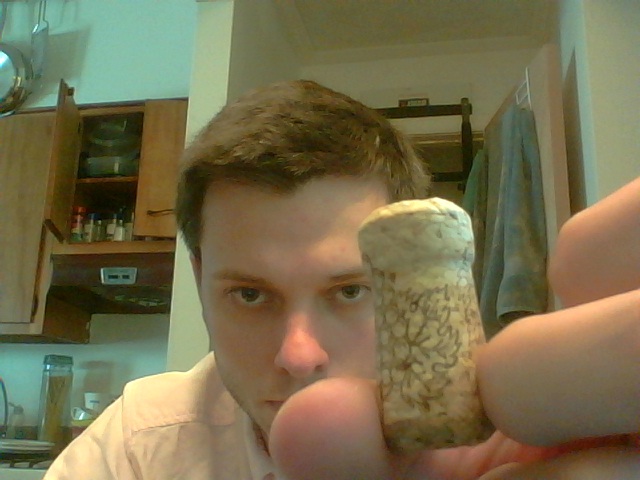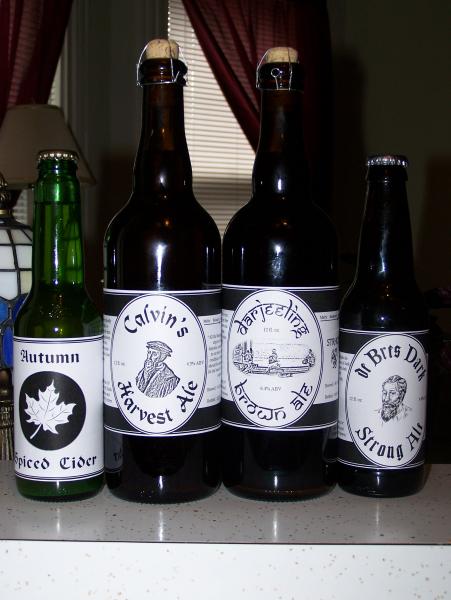tennesseean_87
Well-Known Member
I know you are supposed to use a bench corker and champagne corks for carbonating, but I recently came into some champagne bottles for free and thought I'd experiment in the name of science. So I dropped two carb tabs and a few drops of slurry in a bottle, filled it with water, stuck the bottling wand in for proper head space, and used a rubber mallet and my $5 corker to get a #8 cork most of the way in. I then fashioned a hood from some scrap wire and let it sit for a week or so. I just popped it and it was at least as carbonated as I would expect a beer to be, the mouthfeel was nice and tingly, though it smelled foul and had poor head retention. Maybe Revvy's 3 weeks in a bottle would have conditioned the smell away, but I called it a success. 
I went ahead and bought some 29mm caps and bell to use, but in a pinch this will probably work for beer levels of carb, though I'm not sure it would completely hold 8-9 volumes like champagne (maybe that'll be my next experiment!).


I went ahead and bought some 29mm caps and bell to use, but in a pinch this will probably work for beer levels of carb, though I'm not sure it would completely hold 8-9 volumes like champagne (maybe that'll be my next experiment!).










































![Craft A Brew - Safale BE-256 Yeast - Fermentis - Belgian Ale Dry Yeast - For Belgian & Strong Ales - Ingredients for Home Brewing - Beer Making Supplies - [3 Pack]](https://m.media-amazon.com/images/I/51bcKEwQmWL._SL500_.jpg)
















